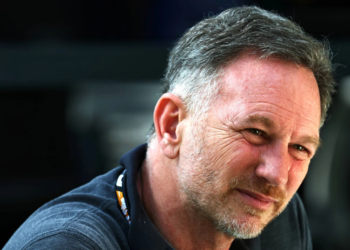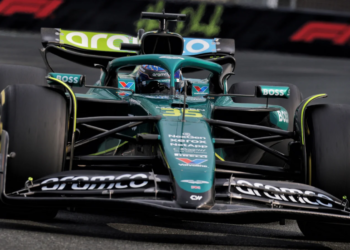Formula 1’s new managing director of motorsports, Ross Brawn, says the sport must have a better decision making process for future rule changes, to ensure they have a clearly defined objective.
F1 has been criticised in the past for changing things without thorough investigation or research and often when no change is required, for example the recent qualifying format shake-up that was received so negatively by fans that it was dumped after just a few races.
Brawn, who has been tasked with improving the sports popularity by making the ‘show’ better, says there will first be a focus on the things that can be changed immediately, such as fan engagement – which has already improved with the relaxing of social media posting for teams.
“Quite honestly from a technical and sporting sense, there’s not a lot of changes [planned this year].,” he told the official Formula 1 website. “There’s a process we have to go through to make those changes, so I think there will be a lot of discussion during the year about how we can improve the show from that side.
“I think in terms of the experience and the information we supply the fans – the social media side – there’s a whole side of F1 that can react quite quickly in terms of trying to improve the experience and the show.
“From the cars and racing perspective, I think stability is important, so there won’t be any major changes there.”
Brawn wants a shakeup to the way rules are created and says Formula One Management (FOM) will, for the first time, have its own department to aid rule making and to thoroughly research changes before they’re implemented.
“I think the only point I would make is the process in which the rules are agreed,” he said. “What I’d like to see in the future, where we want to play a part, is in making sure the objectives are clearly defined. What are the objectives of these regulation changes. If you’re going to make a regulation change, what’s the objective? Then making sure there’s a process where those objectives are sure to be achieved.
“Within FOM we’re going to have our own capacity to judge those things. We’re going to have a small group of engineers, a small group of specialists who can participate with the team and help make sure we achieve those objectives, so we have a better process behind the regulations.”
Along with that, Brawn recently proposed the sport reintroduce non-championship races to give the sport an opportunity to experiment with rule changes and to decide, without unfairly impacting the championship, whether they should be implemented or not.
“It’s a pretty far-out idea,” added Brawn. “I think the point I was trying to make is that we have very little room to experiment with the format and to experiment with the approach we take. So if we want to try a new qualifying format or a new race system or other things, perhaps static starts after a Safety Car for instance, it would be ideal in a non-championship race to trial those things, experiment and see if they work, and the fans like them and see if they’re positive for F1.
“Just to create that environment where we can experiment, because in engineering you experiment, research and try things. These new cars here have had a massive amount of research before they hit the track, and yet we contemplate changing the shape of F1 without trying it and seeing if it works or not.”






Discussion about this post